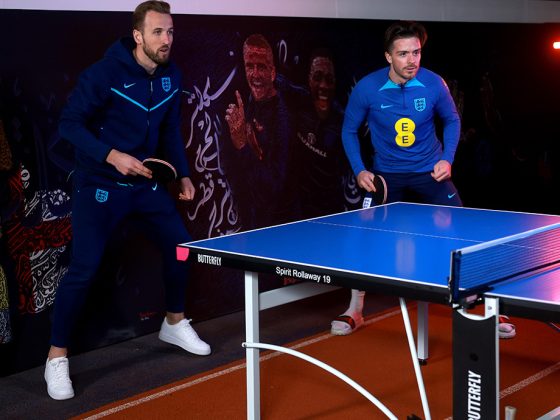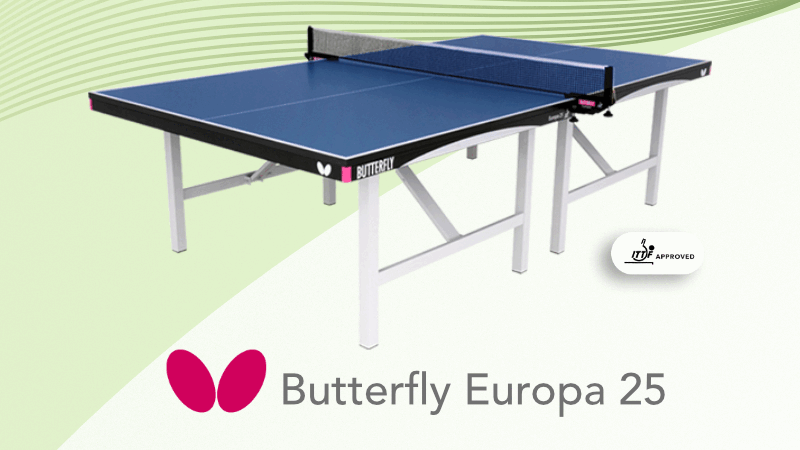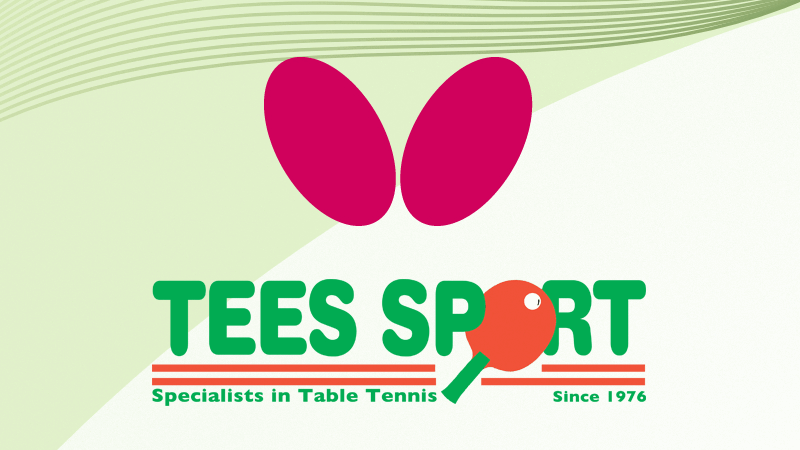Europe’s leading football clubs are increasingly including table tennis as part of their training regimes.
Six-time European champions Liverpool this week shared on social media action from a table tennis tournament played by the squad during a pre-season camp in Germany.
That followed hard on the heels of our very own Liam Pitchford challenging members of the England squad to return his serves.
So how do football and table tennis – at first glance poles apart on the sporting spectrum – make unexpected allies and why does our sport serve as an excellent cross-training activity for elite footballers?
Jack Ramful, our recently appointed Digital Engagement Manager, is the ideal person to answer this, having joined us from the Football Association. Here’s his inside line on why footballers just love to play table tennis.
Improved Reflexes and Speed
Table tennis is a fast-paced game which requires quick reflexes. The ball moves at high speed, and players must react swiftly to return it.
This rapid reaction time can be advantageous in football, where situations can evolve in a split second, and players must respond promptly. From evading opponents to making instantaneous decisions, the improved reflexes and speed gained from table tennis can augment a footballer’s performance.
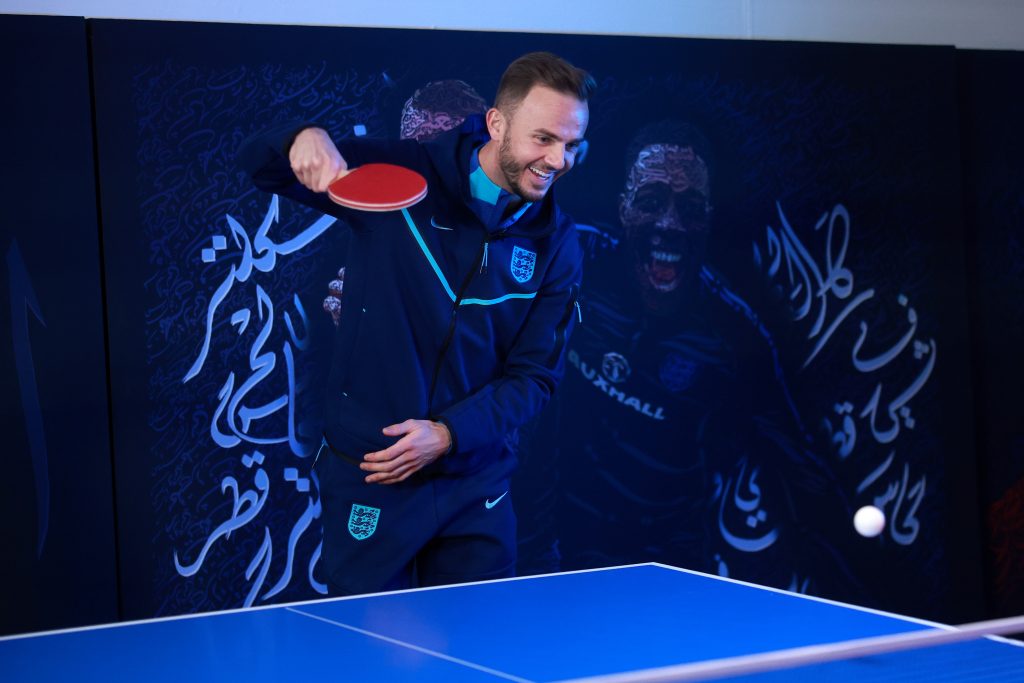
Strategic Thinking
Both football and table tennis require a high degree of strategic thinking. In table tennis, players must anticipate their opponent’s moves, decide when to attack or defend, and aim their shots to exploit their opponent’s weaknesses.
Similarly, footballers must read the game, anticipate the opponent’s strategy, and make tactical decisions. Playing table tennis can help footballers hone their strategic thinking skills, which can translate into better game intelligence on the football field.
Active Recovery and Injury Rehabilitation
Table tennis can serve as an excellent active recovery activity during rest days. It keeps the body moving and the blood flowing without the high-impact stress that football can put on the body.
Furthermore, table tennis can be a beneficial part of injury rehabilitation. It helps maintain fitness levels, improve mobility, and enhance coordination, all while reducing the risk of re-injury.
Team Building
Table tennis matches can also serve as a great team-building exercise. The friendly competition can boost team morale, foster stronger bonds among teammates, and promote a positive team culture. It’s a fun way to develop communication skills and teamwork, both of which are crucial on the football field.
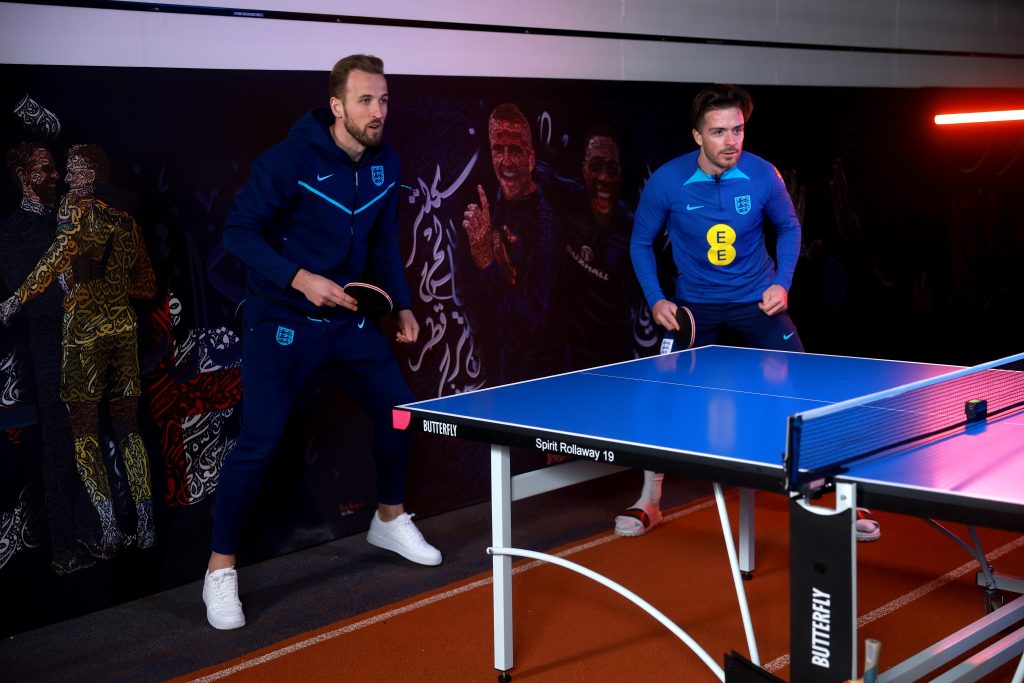
Enhanced Hand-Eye Co-ordination
Table tennis is a sport that demands precision and impeccable timing. It calls for superior hand-eye coordination to accurately hit the small, lightweight ball.
This skill is transferable to football, where players need to synchronise their movements with the trajectory of the ball. Whether it’s a goalkeeper timing a save or a striker aiming for the goal, the enhanced hand-eye coordination acquired from table tennis can provide a significant edge on the football field.
We also know top goalkeepers sometimes train using table tennis robots to fire balls at them, at high speed and from side to side, to sharpen their reflexes. Chelsea legend Petr Cech was just one to use this method.
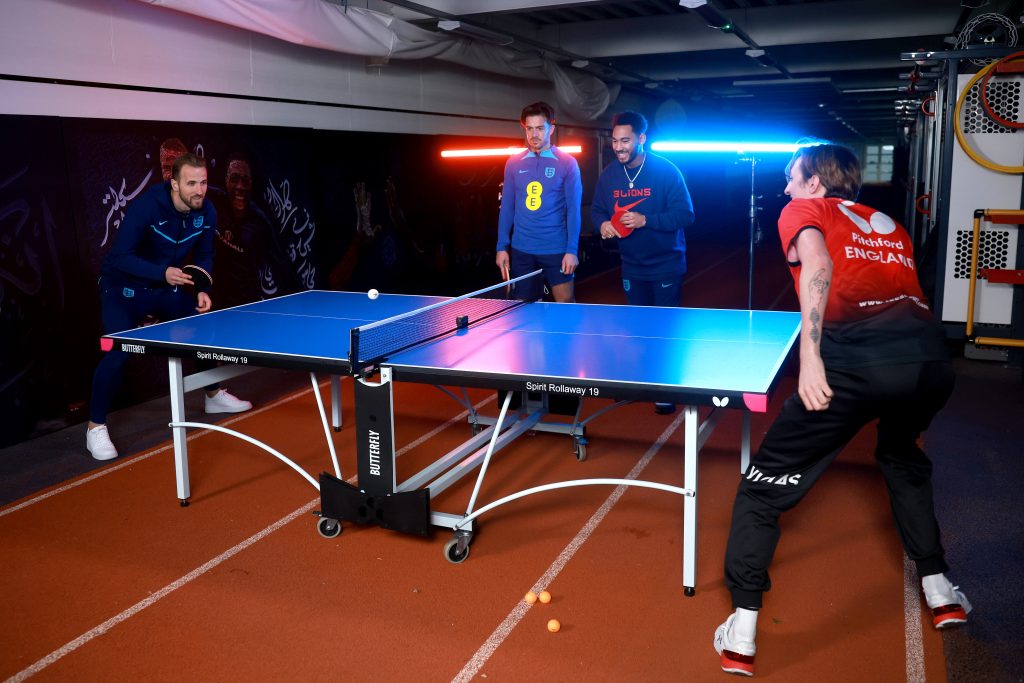
Next time you kick off your boots, pick up a bat!
The relationship between football and table tennis is a testament to the multifaceted nature of sports training. Skills honed in one sport can often translate into significant advantages in another.
For footballers, table tennis offers a unique blend of physical, mental, and emotional benefits that can enhance their performance on the football field.
So, the next time you see footballers rallying around a table tennis table, know that it’s more than just a leisurely game – it’s a strategic cross-training move that’s part of their journey to excellence.


